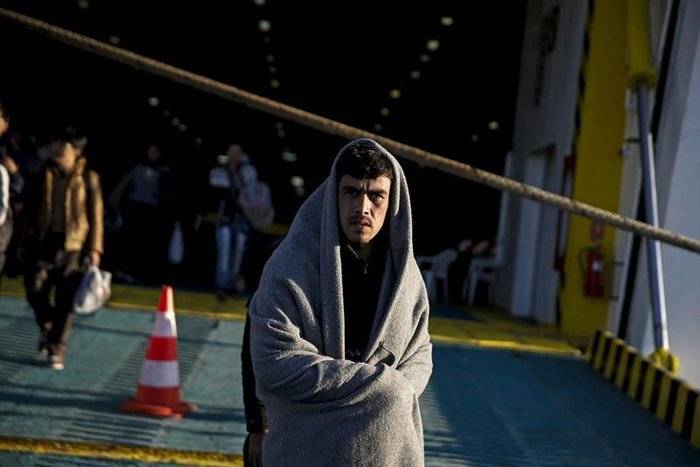I wonder if among those being relocated, some will not like where they are being sent and will try eventually to get to another country.
EU migrant relocation plan to start
Wednesday 4 Nov 2015 3:18 p.m.

A Syrian refugee covered with a blanket arrives aboard the passenger ferry Eleftherios Venizelos from the island of Lesbos at the port of Piraeus, near Athens, Greece (Reuters)
Greece will begin the process of sending refugees, mostly Syrians and Iraqis, to other EU member states under the bloc's refugee relocation plan on Wednesday (local time).
Greek Prime Minister Alexis Tsipras will meet a first group of 30 refugees at Athens airport early on Wednesday morning before they voluntarily board a plane for Luxembourg, the government said in a statement on Tuesday.
The European commissioner for immigration, Dimitris Avramopoulos of Greece, as well as European Parliament president Martin Schulz and Luxembourg Foreign Minister Jean Asselborn will attend the launch of the program, an EU statement said.
Read more:
EU migrant relocation plan to start
EU migrant relocation plan to start
Wednesday 4 Nov 2015 3:18 p.m.

A Syrian refugee covered with a blanket arrives aboard the passenger ferry Eleftherios Venizelos from the island of Lesbos at the port of Piraeus, near Athens, Greece (Reuters)
Greece will begin the process of sending refugees, mostly Syrians and Iraqis, to other EU member states under the bloc's refugee relocation plan on Wednesday (local time).
Greek Prime Minister Alexis Tsipras will meet a first group of 30 refugees at Athens airport early on Wednesday morning before they voluntarily board a plane for Luxembourg, the government said in a statement on Tuesday.
The European commissioner for immigration, Dimitris Avramopoulos of Greece, as well as European Parliament president Martin Schulz and Luxembourg Foreign Minister Jean Asselborn will attend the launch of the program, an EU statement said.
Read more:
EU migrant relocation plan to start



